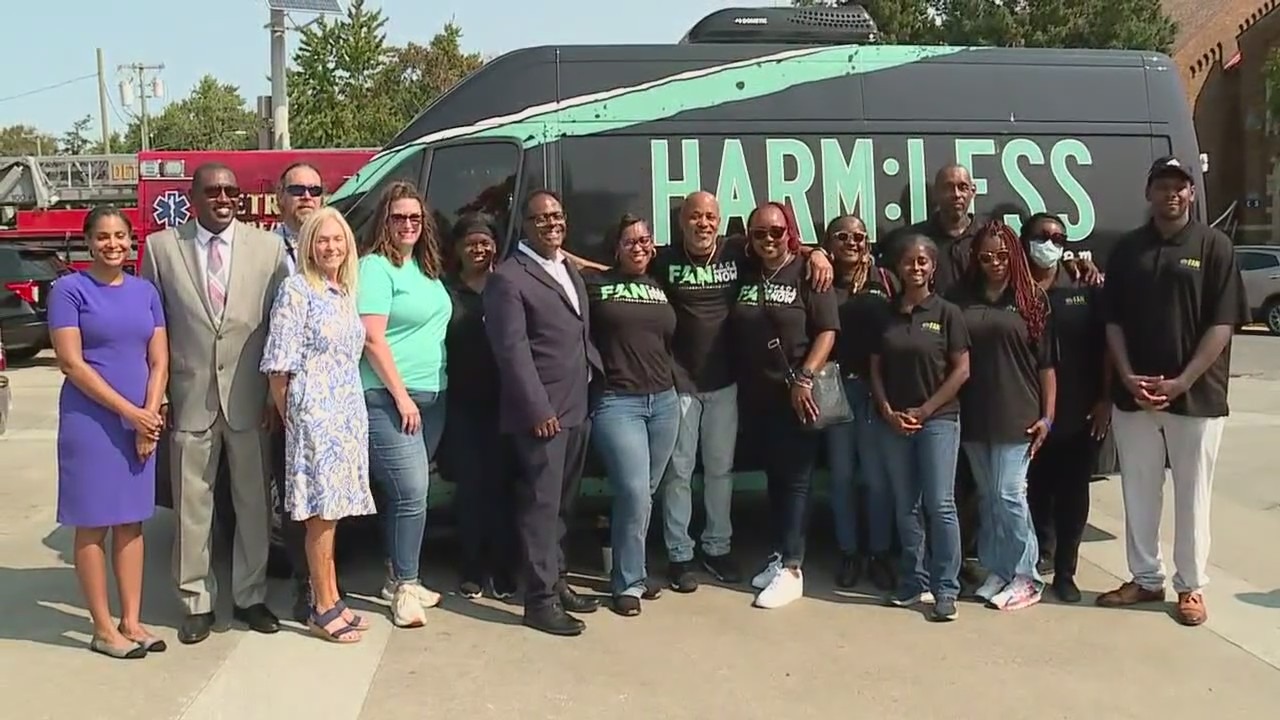Detroit Opioid Quick Response Team on the call to help those struggling with drug addiction
One of the patients they have been dealing with, Carol Bowie, reports that she has been having difficulty quitting heroin, which is used to alleviate her pain. Members of the Detroit Opioid Quick Response Team check in on her.
The Detroit Opioid Quick Response Team has been putting a lot of effort into lowering the number of opioid-related deaths in Detroit, which reached 430 in 2023. They have only been operational for roughly three months.
Members made several house calls on Thursday to see how the patients they had been working with were doing. One of the patients, Carol Bowie, said she has been having trouble quitting heroin, which she uses to help manage her pain.
“I have a heart condition and kidney failure, but they have come over regularly and checked on me and try to, you know, help me not use anymore, and that s my main goal,” Bowie stated.
A little more than three months have passed since the Quick Response Team was established and began working to assist individuals affected by the evil of addiction.
They are now discussing the progress they have made in the effort to save lives.
“Well, it’s quite hectic. “Clearly, we are affecting a highly susceptible demographic,” stated Executive Director Linda Davis. “We ve made over 800 calls during that period of time.”
With so many resources at their disposal, they have linked up about fifty people to assist.
“Either getting them to an in-patient treatment, outpatient treatment, connecting them with a peer recovery coach that s able to help them navigate recovery within their community, so there s multiple parts to that,” Davis explained.
The crew gave us a behind-the-scenes look at FOX 2, demonstrating their regular workflow.
According to Thomas Hunter of the Detroit Opioid Quick Response Team, “our day looks like going to visit our high priorities first – people who came in with an OD, within the last two days.” “And we ll follow up to see if we can offer them services.”
Given the limited tools available to them for serious addiction difficulties and the aggravation of seeing the same patients repeatedly on overdose calls, EMTs believe the quick response operation has been a huge assistance.
According to Detroit Medical Director Robert Dunne, “we had identified a clear gap, particularly in patients that had an overdose, interacted with EMS, and then refused to seek any further care.” “They wouldn t go to the hospital, and we didn t really have any other options for those patients, so that was one of the first things that we identified and what we re doing now is getting this quick response team in front of those patients so they can get cared for.”
Long-term change may result from that initial relationship.
“A conversation is the beginning of recovery,” Davis stated. “If you can have a positive conversation with someone, they re willing to listen, that can be the first step to recovery.”
Carol is headed in the correct direction for support.
“They help me to get to my doctors on my phone because I didn t know how to do that,” Bowie stated. “They come and check on me all the time, mostly.”
According to team members, they have linked about fifty people to services for addiction treatment thus far. Those who have recently overdosed are given priority.
Note: Every piece of content is rigorously reviewed by our team of experienced writers and editors to ensure its accuracy. Our writers use credible sources and adhere to strict fact-checking protocols to verify all claims and data before publication. If an error is identified, we promptly correct it and strive for transparency in all updates, feel free to reach out to us via email. We appreciate your trust and support!











